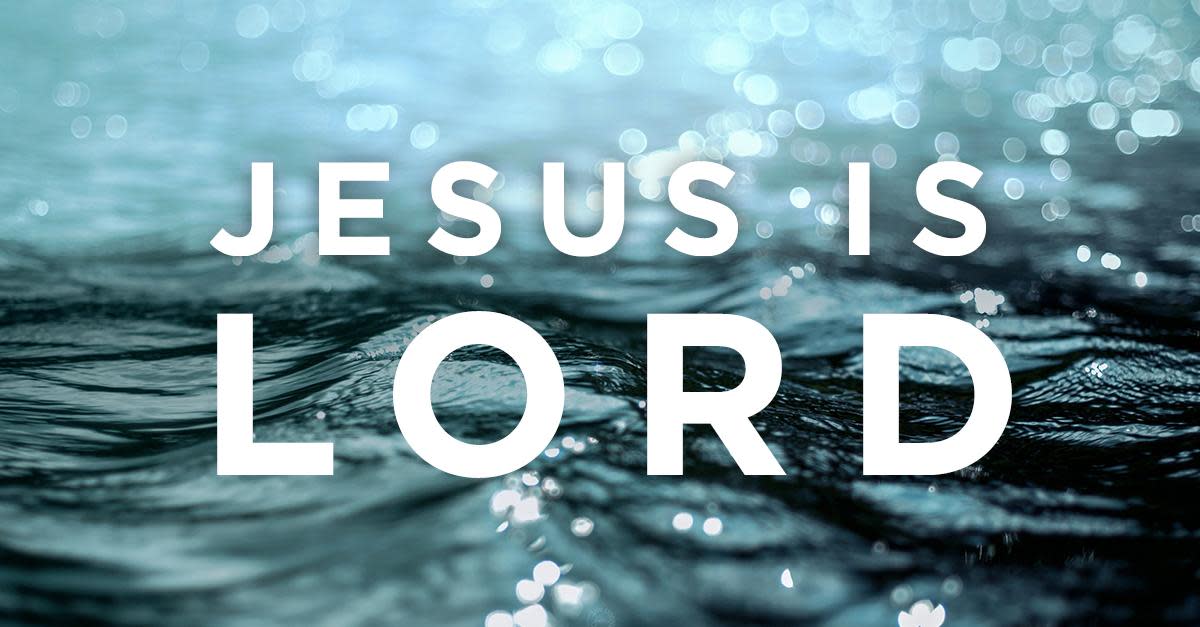Divine Thoughts? The Apostles' Creed: 'I Believe'
What does "I believe" mean?
"I believe in God..." are the first words of the Apostles' Creed. Christians have used this simple statement of core Christian doctrines for many hundreds of years, particularly as a "symbol of Baptism,"--a personal statement of intention to live inside the Christian story. It may seem a really basic question, but in a pluralistic and scientifically-informed society like our own, what does it mean to "believe"?
In an earlier published version of this piece, I used the word "individual" where I now have "personal." In discussions with learned friends, especially those of the Eastern Orthodox traditions, I have learned that the word "individual" almost always has a negative connotation. An "individual" is a human being who believes (in the words of a well-known song), "I am a rock; I am an island." An individual behaves as though they can exist in isolation from everything around them; they behave, theologically, as though being "self-made" is possible. An individual is someone who insists on the rightness of their "I" and stubbornly refuses to change, even when given sound reasons so to do. In some ways, the word "individual" is a synonym for the word "heretic."
A person, on the other hand, realises and tries to contribute to the web of relationships that makes up their experience, including their sense of self. A person, theologically, is someone who recognizes and pays forward the gift of being dependent upon God, the earth, and other people (including ancestors, future generations and the "communion of saints"). I, Robbie, am in reality an emergent property of all my complex and complicated relationships.
With this sense of personal in mind, what does "I believe" mean? The answer seems obvious: It means "I agree with the following bullet list of doctrines." In such a view of belief, the Creed provides the bare bones of orthodoxy, defined as "right thinking or worship." Such "right thinking" is helpful in many circumstances, because it helps Christians "get on the same page" when we're working together or even debating other aspects of our faith.
This definition of belief is called assensus, from which we get our word "assent"--binding mental agreement.This kind of belief is important in scientific disciplines, too; after all, one could hardly have a productive conversation with someone who stubbornly insisted, when using a base-10 number system and whole numbers, that 2+2=3!
Assensus alone does not reflect the kind of faith of which the Creed speaks, though it is an important part of Christians' experience.

Other kinds of belief
To illustrate other kinds or levels of belief, I invite you to think of being in conversation with someone for whom you care deeply.If my friend said to me, "Two and two are four," my response (should one be required) would be, "Right." (Meaning, "Yes, I believe you are correct.") I mentally assent to the truth of the proposition.
But imagine if my friend said to me, "I love you." Would mental assent be enough? It's a start, but it's not enough: Assent is necessary but not sufficient, as a logician might say. Believing that someone really loves us has to go further than mental agreement; after all, I may not "agree" with my, at least at first.
Why not?
Because belief in that kind of situation requires trust, vulnerability, honour and (even) sacrifice. If I answer my friend with a shocked expression, "I believe you!" I am making a comment about their character. I am making a choice to receive something emotional and probably life-changing, and we say "life-changing," I think, because it shifts something about who I am as a person.
Imagine if our friend came to us and said, "You know what? I think I've found what I want to do with my life, and the kind of person I want to be. What do you think?" The story comes pouring out, and then, trembling and silent, our friend waits for our response.
We can see the fear in their eyes. Thoughtfully and almost automatically, because we care about them and their story, we wrap our arms around them and say: "I believe in you." This goes beyond belief in the second example, because we are choosing to shore them up, invest ourselves in their well-being, and defend them against unbelieving voices: "You're crazy! Get your head out of the clouds! Get a real job! That's nice, but you have to be reasonable..." This kind of belief may be riskiest of all, but we still deem it worth those risks.
When we say "I believe" in the Creed, we strive to offer not only assent, but trust, deep investment and (even) love.The propositions are important, certainly, but they go deeper than a checklist to our innermost thoughts and commitments.
When Christians say, "I believe," we are investing ourselves in the One God, Father, Son, and Holy Spirit, and in the story we tell and live as the Church. In our belief, we trust that we are loved far more deeply than we could ever know by the God who believes in us. We respond by investing our lives in this amazing, risky, and (in human terms alone) impossible story; a story that only becomes possible because of the God we experience in our lives as Christians and celebrate by saying the Creed.








